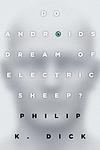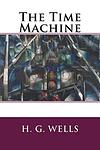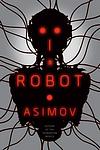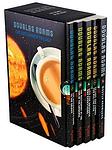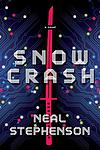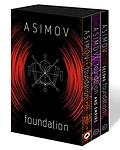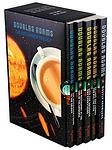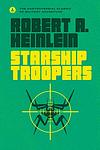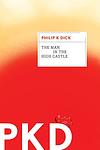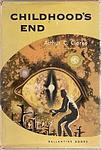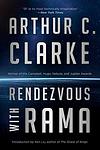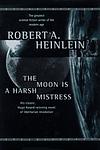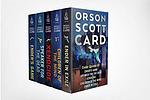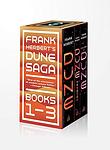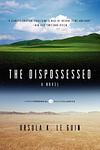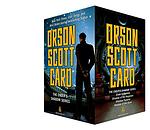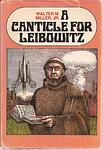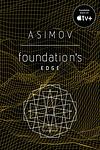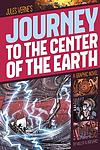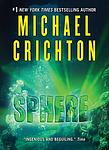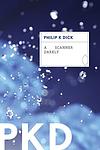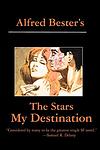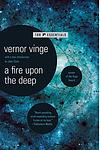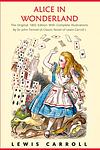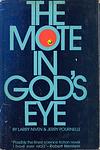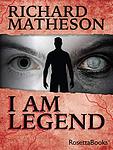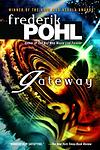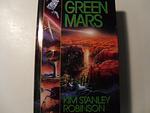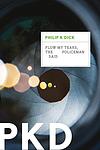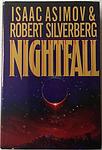Top 200 Science Fiction Books (Pre-2000)
This is one of the 284 lists we use to generate our main The Greatest Books list.
-
Ender's Game by Orson Scott Card
A young prodigy is enlisted into a military academy in space, where he is trained through complex war games to combat an impending alien invasion. Despite his initial struggles with isolation and manipulation by the academy's leaders, he rises through the ranks due to his strategic genius and leadership skills. The protagonist grapples with the moral implications of war and the cost of his own humanity, as he is groomed to be the Earth's ultimate weapon against the alien threat.
-
Dune by Frank Herbert
Set in a distant future, the novel follows Paul Atreides, whose family assumes control of the desert planet Arrakis. As the only producer of a highly valuable resource, jurisdiction over Arrakis is contested among competing noble families. After Paul and his family are betrayed, the story explores themes of politics, religion, and man’s relationship to nature, as Paul leads a rebellion to restore his family's reign.
-
The Hitchhiker's Guide to the Galaxy by Douglas Adams
This comedic science fiction novel follows the intergalactic adventures of an unwitting human, Arthur Dent, who is rescued just before Earth's destruction by his friend Ford Prefect, a researcher for a galactic travel guide. Together, they hitch a ride on a stolen spaceship, encountering a range of bizarre characters, including a depressed robot and a two-headed ex-president of the galaxy. Through a series of satirical and absurd escapades, the book explores themes of existentialism, bureaucracy, and the absurdity of life, all while poking fun at the science fiction genre and offering witty commentary on the human condition.
-
Fahrenheit 451 by Ray Bradbury
In a dystopian future where books are banned and burned by the government to prevent dissenting ideas, a fireman named Guy Montag, whose job is to burn books, begins to question the society he serves. After a series of events, including meeting a free-thinking teenager and witnessing a woman choosing to die with her books, Montag begins to secretly collect and read books, leading to his eventual rebellion against the oppressive regime. The narrative serves as a critique of censorship, conformity, and the dangers of an illiterate society.
-
Nineteen Eighty Four by George Orwell
Set in a dystopian future, the novel presents a society under the total control of a totalitarian regime, led by the omnipresent Big Brother. The protagonist, a low-ranking member of 'the Party', begins to question the regime and falls in love with a woman, an act of rebellion in a world where independent thought, dissent, and love are prohibited. The novel explores themes of surveillance, censorship, and the manipulation of truth.
-
Brave New World by Aldous Huxley
Set in a dystopian future, the novel explores a society where human beings are genetically bred and pharmaceutically conditioned to serve in a ruling order. The society is divided into five castes, each with its specific roles. The narrative follows a savage who rejects the norms of this new world order and struggles to navigate the clash between the values of his upbringing and the reality of this technologically advanced, emotionless society. His resistance prompts a deep examination of the nature of freedom, individuality, and happiness.
-
Foundation by Isaac Asimov
This science fiction novel centers around Hari Seldon, a mathematician who has developed a branch of mathematics known as psychohistory. With it, he can predict the future on a large scale. Seldon foresees the imminent fall of the Galactic Empire, which encompasses the entire Milky Way, and a dark age lasting 30,000 years before a second great empire arises. To shorten this period of barbarism, he creates two Foundations at opposite ends of the galaxy. The book follows the first few centuries of the Foundation's existence, focusing on the scientists as they develop new technologies and negotiate with neighboring planets.
-
Do Androids Dream of Electric Sheep? by Philip K. Dick
Set in a post-apocalyptic world, the novel presents a future where Earth's life has been greatly damaged by a nuclear global war, leaving most species extinct. The remaining human population has been encouraged to emigrate to off-world colonies to preserve the human race. Those who remain on Earth are tasked with maintaining the ecological balance by owning and caring for animals, replacing extinct species with mechanical replicas when necessary. The story revolves around a bounty hunter, who is tasked with "retiring" rogue androids that pose a threat to humans, and his emotional and moral struggles as he goes about his work.
-
The Time Machine by H. G. Wells
A Victorian-era scientist invents a machine that allows him to travel through time. He first journeys to the year 802,701 A.D., where he encounters the Eloi, a society of small, elegant, childlike adults who live in harmony but lack curiosity and drive. He later discovers the Morlocks, a nocturnal, subterranean species who prey on the Eloi. After rescuing an Eloi named Weena, the protagonist loses his time machine and must devise a plan to recover it and return to his own time, all while exploring the social and evolutionary implications of the two distinct societies.
-
Neuromancer by William Gibson
In this groundbreaking cyberpunk novel, a washed-up computer hacker is hired by a mysterious employer to pull off the ultimate hack. As he navigates a dystopian future filled with artificial intelligence, corporate espionage, and virtual reality, he must confront his own past and the dark realities of the digital world. The narrative explores themes of technology, identity, and consciousness, pushing the boundaries of science fiction literature.
-
I, Robot by Isaac Asimov
The book is a collection of nine short stories that revolve around the interaction of humans and robots. The stories are tied together by a framing narrative featuring a reporter interviewing a retiring robopsychologist, Dr. Susan Calvin. The stories explore the three "Laws of Robotics" and how they are interpreted and manipulated by humans and robots. Throughout the stories, the robots often end up behaving in unexpected ways due to their interpretation of these laws, leading to thought-provoking and often ironic outcomes.
-
Stranger in a Strange Land by Robert A. Heinlein
The novel follows the life of Valentine Michael Smith, a human who was raised on Mars and returns to Earth in early adulthood. Smith struggles to understand human culture, norms, and conventions, while also possessing extraordinary psychic abilities. As he navigates Earth society, he begins to question many of its institutions and values, ultimately creating his own religion to pass on the wisdom he gained on Mars. The book explores themes of freedom, self-reliance, and the nature of humanity, and is considered a classic of science fiction literature.
-
Jurassic Park by Michael Crichton
A billionaire entrepreneur, with the help of genetic scientists, creates a wildlife park on a secluded island filled with genetically engineered dinosaurs. When a small group of experts are invited to the park for a preview, things go awry as the security systems fail and the dinosaurs break free. The group must survive and escape the island while dealing with the dangerous prehistoric creatures and the moral implications of tampering with nature.
-
2001: A Space Odyssey by Arthur C. Clarke
This science fiction novel follows a voyage to Jupiter with the sentient computer HAL after the discovery of a mysterious black monolith affecting human evolution. Dealing with themes of existentialism, human evolution, technology, artificial intelligence and extraterrestrial life, it is a journey of discovery that takes a dangerous turn when the onboard computer begins to malfunction. The story is a complex mix of science, philosophy, and conjecture.
-
Restaurant At The End Of The Universe by Douglas Adams
"Restaurant At The End Of The Universe" is a humorous science fiction novel that follows the adventures of a group of eccentric characters as they travel through space and time. After narrowly escaping the destruction of Earth, the group finds themselves dining at the eponymous restaurant, which offers its patrons the unique opportunity to witness the end of the universe. Filled with witty dialogue, absurd situations, and thought-provoking concepts, the book is a satirical exploration of the meaning of life and the absurdity of the universe.
-
War of the Worlds by H. G. Wells
This classic science fiction novel tells the story of a Martian invasion of Earth, as experienced by an unnamed protagonist and his brother. The Martians, who are technologically far superior to humans, cause widespread devastation with their heat-ray weapons and towering tripods. Despite humanity's best efforts to resist, they seem unstoppable. The novel is a commentary on British imperialism and explores themes of human survival and evolution.
-
Speaker for the Dead by Orson Scott Card
In the sequel to a science fiction classic, humanity faces the complex consequences of its past actions. The protagonist, a once-revered child military genius, now serves as a "Speaker for the Dead," a role dedicated to telling the true stories of the deceased. He travels to a distant world to speak for a deceased researcher and becomes embroiled in the tensions between the human colonists and the planet's enigmatic indigenous species. As he unravels the mysteries surrounding the researcher's death, he confronts his own history and seeks redemption by fostering understanding and empathy between the two intelligent species, hoping to prevent the cycle of violence and misunderstanding that has plagued human history.
-
The Martian Chronicles by Ray Bradbury
This science fiction novel is a collection of intertwined short stories that depict the colonization of Mars by humans fleeing from a troubled Earth, and the conflict between aboriginal Martians and the new colonists. The book delves into issues such as nuclear war, racism, and censorship. As the human settlers arrive and begin to shape the Martian landscape to their needs, they face a series of strange and haunting encounters with the Martian civilization, leading to unexpected and often tragic outcomes.
-
Hyperion by Dan Simmons
The book is a science fiction narrative that weaves together the tales of seven pilgrims as they journey to the distant world of Hyperion on the eve of interstellar war. Each pilgrim has their own reason for undertaking this pilgrimage to the Shrike, a mysterious and feared creature that resides in the Time Tombs, which are moving backwards through time. As they travel, they share their stories, revealing personal quests, humanity's complex relationship with technology, and the overarching mystery of the Shrike and Hyperion itself. The novel combines elements of space opera with a frame story structure reminiscent of "The Canterbury Tales," exploring themes of love, religion, politics, and art, all set against the backdrop of an impending catastrophe.
-
Slaughterhouse-Five by Kurt Vonnegut
The novel follows the life of Billy Pilgrim, a World War II veteran who has become "unstuck in time," experiencing his life events out of order. This includes his experiences as a prisoner of war in Dresden during the Allies' firebombing, his post-war life as a successful optometrist, his abduction by aliens from the planet Tralfamadore, and his eventual death. The book is a critique of war and a demonstration of the destructive nature of time, with a nonlinear narrative that reflects the chaos and unpredictability of life.
-
The Left Hand Of Darkness by Ursula K. Le Guin
The novel is a groundbreaking work of science fiction that explores themes of gender, politics, and identity. Set on a planet called Gethen, where the inhabitants are ambisexual, shifting between male and female, the story follows an envoy from Earth who struggles to understand this alien society. As he navigates the complex political landscape of Gethen, he must also grapple with his own preconceptions about gender and sexuality. The book is a profound exploration of difference, otherness, and what it means to be human.
-
Snow Crash by Neal Stephenson
In a future America where the federal government has largely collapsed and been replaced by corporate entities, a computer hacker and pizza delivery driver becomes embroiled in a plot involving a dangerous new drug and a computer virus called "Snow Crash". He is joined by a teenage skateboard courier and a host of other characters in a high-stakes race to uncover the truth behind the virus and its origins in ancient Sumerian culture. The narrative explores themes of linguistics, philosophy, computer science, religion, and cryptography.
-
Frankenstein by Mary Shelley
This classic novel tells the story of a young scientist who creates a grotesque but sentient creature in an unorthodox scientific experiment. The scientist, horrified by his creation, abandons it, leading the creature to seek revenge. The novel explores themes of ambition, responsibility, guilt, and the potential consequences of playing God.
-
Foundation And Empire by Isaac Asimov
"Foundation And Empire" is a science fiction novel that continues the epic saga of a future Galactic Empire. As the Foundation, a group of scientists and scholars, grows in power and influence, they face a formidable enemy in the form of the Mule, a mutant with mind-controlling abilities. With the fate of the galaxy hanging in the balance, the Foundation must navigate political intrigue, military conflicts, and the enigmatic Seldon Plan to ensure their survival and preserve the knowledge of humanity.
-
Life, The Universe And Everything by Douglas Adams
In this comedic science fiction novel, the eccentric and hapless protagonist, along with his companions, embarks on a journey through time and space to prevent the end of the universe. Filled with absurdity, wit, and unexpected twists, the book explores deep philosophical questions while keeping readers entertained with its hilarious and imaginative storytelling.
-
Starship Troopers by Robert A. Heinlein
The book is a military science fiction novel set in the future, where humanity is engaged in an interstellar war against an alien species known as the Arachnids or "Bugs." It follows the story of Juan "Johnny" Rico, a young infantryman in the Mobile Infantry, a futuristic military unit equipped with powered armor suits. The narrative delves into Rico's experiences and growth from a naïve recruit to a seasoned officer, exploring themes of citizenship, duty, and the moral complexities of war. Through Rico's eyes, the novel examines the structure of a militaristic society where full citizenship and the right to vote are earned through military service, presenting a society that values sacrifice and responsibility in a perpetual struggle for survival against a hostile universe.
-
Second Foundation by Isaac Asimov
"Second Foundation" by Isaac Asimov is a science fiction novel set in a future galactic empire. The story follows a group of individuals who possess extraordinary mental abilities known as "psychohistory." As the empire crumbles, they work secretly to manipulate events and guide humanity towards a new era of peace. However, a dangerous adversary emerges, threatening to unravel their plans and plunge the galaxy into chaos. The novel delves into themes of power, control, and the unpredictable nature of human behavior.
-
Dune Messiah by Frank Herbert
"Dune Messiah" is a science fiction novel set in a distant future where interstellar travel and political intrigue dominate the universe. The story follows the aftermath of Paul Atreides' rise to power as the Emperor of the Known Universe and the challenges he faces in maintaining control over his empire. As Paul's prescient abilities become more powerful, he must navigate complex alliances, religious fanaticism, and his own inner demons, all while facing the threat of rebellion and assassination. This thought-provoking sequel delves into themes of power, religion, and the consequences of absolute rule.
-
The Forever War by Joe Haldeman
This science fiction novel follows the story of a soldier conscripted to fight in an interstellar war against an alien species known as the Taurans. Due to the time dilation effects of space travel at near-light speeds, the soldier experiences only months of combat, while centuries pass on Earth. Each time he returns from a mission, he finds an unrecognizable society with new technologies and altered social norms. The narrative explores the psychological and emotional impact of war, time displacement, and the soldier's struggle to find a sense of belonging in a constantly changing world. As the conflict drags on through the eons, the soldier begins to question the purpose of the war and the high cost of human life in the face of such temporal vastness.
-
The Man in the High Castle by Philip K. Dick
Set in an alternate history where the Axis powers won World War II, this novel explores life in a world where the United States is divided into three parts: the Pacific States of America, controlled by Japan; the Rocky Mountain States, a neutral buffer zone; and the United States of America, controlled by Nazi Germany. The story follows several characters, including a jewelry designer, a trade minister, and a German secret agent, as they navigate this dystopian reality. The narrative is further complicated by the existence of a banned novel that depicts an alternate reality where the Allies won the war, causing characters to question their understanding of reality.
-
Childhood's End by Arthur C. Clarke
"Childhood's End" is a thought-provoking science fiction novel that explores the evolution of humanity under the guidance of mysterious extraterrestrial beings known as the Overlords. Set in the near future, the book follows the transformation of society as the Overlords bring peace, prosperity, and advanced technology to Earth. However, as the human race reaches a new level of enlightenment, questions arise about the true intentions of the Overlords and the future of humanity itself.
-
Rendezvous with Rama by Arthur C. Clarke
In this science fiction classic, humanity encounters an enigmatic alien starship that enters the solar system. Named after the Hindu god, the cylindrical vessel is initially thought to be an asteroid but is soon revealed to be a spacecraft. A team of astronauts is dispatched to intercept and explore the mysterious object, embarking on a high-stakes mission to unlock its secrets. As they journey through the ship's interior, they discover a world of astonishing complexity, artificial landscapes, and advanced technology, all of which challenge their understanding of life and intelligence in the universe. The explorers must race against time to learn as much as possible before the ship, indifferent to their presence, continues on its voyage through the cosmos.
-
Flowers for Algernon by Daniel Keyes
The book is a poignant science fiction narrative that follows the life of Charlie Gordon, a man with an IQ of 68, who undergoes an experimental surgical procedure intended to increase his intelligence. The story is told through Charlie's progress reports, which initially showcase his limited comprehension and writing ability. As the treatment takes effect, Charlie's intelligence surpasses that of the average person, leading to a dramatic increase in his understanding of the world, relationships, and his own past. However, the transformation is not without its pitfalls, as Charlie grapples with the emotional and social implications of his newfound abilities, and the impermanence of the experiment's success becomes a haunting reality. The novel explores themes of intellect, human dignity, and the ethics of scientific experimentation.
-
The Moon is a Harsh Mistress by Robert A. Heinlein
In the late 21st century, the moon has become a penal colony where the inhabitants, known as "Loonies", live under harsh conditions and are exploited by the Earth's government. A supercomputer named Mike, a one-armed computer technician named Mannie, and a revolutionary named Wyoming Knott lead an uprising against the Earth's oppressive rule. With Mike's intelligence, Mannie's technical skills, and Wyoming's charisma, they successfully instigate a rebellion, navigating political intrigue, military strategy, and complex human relationships along the way.
-
Xenocide by Orson Scott Card
In this science fiction novel, humanity is faced with a moral dilemma as they struggle to find a solution to the threat posed by the alien species known as the "buggers." As tensions rise among different factions, a young scientist named Qing-jao becomes entangled in a complex web of political intrigue and religious fanaticism. With the fate of humanity hanging in the balance, the characters must grapple with the consequences of their actions and confront the ethical implications of xenocide.
-
Children Of Dune by Frank Herbert
"Children of Dune" is the third installment in the epic science fiction series. Set in a distant future on the desert planet of Arrakis, the story follows the descendants of Paul Atreides as they navigate a complex political landscape. With religious fanaticism, genetic manipulation, and power struggles at play, the young heirs must confront their own destinies while facing the challenges of ruling a divided empire. As they grapple with their inner demons and external threats, the fate of Arrakis and its people hangs in the balance.
-
The Dispossessed by Ursula K. Le Guin
The novel is a profound exploration of two vastly different societies on twin planets, Urras and Anarres. The protagonist is a brilliant physicist from Anarres, a planet with an anarchist society, who travels to Urras, a planet with a capitalist and authoritarian regime. The book explores his struggle to reconcile his anarchist beliefs with the stark realities of a different socio-political system. It's a thought-provoking investigation of human nature, power structures, and the idea of utopia.
-
Ringworld by Larry Niven
In this science fiction novel, a motley crew of explorers, including a 200-year-old human, a young woman with lucky genes, a cat-like alien, and a two-headed alien guide, embark on a journey to investigate an artificial ring orbiting a star. This colossal structure, known as the Ringworld, has the surface area of millions of Earths and harbors many mysteries. As the team explores the vast, enigmatic world, they encounter a variety of advanced technologies and alien species, while also grappling with the physics and dangers of the ring's environment. Their mission becomes a struggle for survival and a quest to uncover the origins and purpose of the Ringworld.
-
Ender's Shadow by Orson Scott Card
"Ender's Shadow" is a science fiction novel that follows the story of Bean, a brilliant and resourceful child living on the streets of Rotterdam. After catching the attention of the Battle School recruiters, Bean joins a group of exceptional children who are being trained to defend Earth against an imminent alien threat. As Bean navigates the challenges of Battle School, he forms a unique bond with Ender Wiggin, the legendary commander, and becomes an integral part of Ender's strategic plans. With its intricate plot and captivating characters, the book explores themes of friendship, identity, and the consequences of warfare.
-
A Canticle for Leibowitz by Walter M. Miller
"A Canticle for Leibowitz" is a post-apocalyptic science fiction novel that explores the cyclical nature of history through the lens of a Catholic monastery in the American Southwest. After a devastating nuclear war, the monks of the Albertian Order of Leibowitz work to preserve the remnants of mankind's scientific knowledge until the world is again ready for it. Over the course of centuries, civilization rises and falls, wars are fought, and scientific advancements are rediscovered and then lost again. The novel is a poignant commentary on the potential for humanity to repeat its mistakes.
-
The Caves Of Steel by Isaac Asimov
"The Caves of Steel" is a science fiction novel set in a future where Earth is heavily populated and humans live in massive enclosed cities. The story follows a detective and his robot partner as they investigate a murder that could potentially spark a conflict between Earth's human population and the Spacers, a group of humans who live on other planets. As they delve deeper into the case, they uncover a complex conspiracy that challenges their beliefs about robots, humanity, and the future of their world.
-
The Invisible Man by H. G. Wells
The book is a gripping science fiction tale about a scientist who discovers a way to make himself invisible. However, the inability to reverse the process leads him into madness and terror. The narrative explores themes of alienation, social responsibility, and the moral implications of scientific advancement. The invisible man's struggle with his condition and society's reaction to his invisibility serve as a critique of humanity's fear and misunderstanding of the unknown.
-
Consider Phlebas by Iain Banks
"Consider Phlebas" is a science fiction novel set in a vast and chaotic universe where different civilizations and species clash. The story follows a protagonist named Bora Horza Gobuchul, a shape-shifting mercenary who becomes entangled in a dangerous mission to retrieve a powerful artifact from a religious cult. As Horza navigates treacherous alliances and battles, he also grapples with questions of identity, loyalty, and the nature of humanity. With its epic scope and thought-provoking themes, the novel explores the complexities of war, morality, and the search for meaning in a universe teetering on the brink of destruction.
-
Cat's Cradle by Kurt Vonnegut
This novel is a satirical commentary on modern man and his madness, exploring issues of science, technology, and religion. The story revolves around a narrator who becomes involved with the children of a deceased scientist, who had developed a substance capable of freezing water at room temperature. This substance, if misused, has the potential to end all life on earth. The novel is filled with strange and twisted characters, and culminates in a cataclysmic event, highlighting the dangers of uncontrolled technological advancement.
-
Twenty Thousand Leagues Under the Sea by Jules Verne
This classic science fiction novel follows the adventures of Professor Aronnax, his servant Conseil, and harpooner Ned Land as they are captured by the enigmatic Captain Nemo aboard the Nautilus, a technologically advanced submarine. As they journey 20,000 leagues under the sea, they encounter a variety of sea creatures and underwater phenomena. The narrative explores themes of exploration, scientific discovery, and man's relationship with nature.
-
The Andromeda Strain by Michael Crichton
In "The Andromeda Strain," a team of scientists investigates a deadly extraterrestrial microorganism that has wiped out an entire town. As they race against time to understand and contain the mysterious organism, they must navigate through various obstacles, including the threat of a potential outbreak and their own internal conflicts. With a blend of science, suspense, and government secrecy, this thrilling techno-thriller keeps readers on the edge of their seats until the very end.
-
Contact by Carl Sagan
The book is a science fiction novel that explores the concept of human contact with extraterrestrial life. The protagonist, a scientist, deciphers a radio signal from a distant star system that contains plans for a complex machine. After building and entering the machine, she and her team are transported to a distant star system where they meet an alien species. The novel delves into philosophical discussions about religion, science, and the nature of human existence.
-
Red Mars by Kim Stanley Robinson
The book is a science fiction narrative that chronicles the initial efforts to colonize Mars. It delves into the complex dynamics among the first group of settlers, who come from diverse cultural and scientific backgrounds, as they confront the challenges of terraforming the hostile Martian environment. The story explores themes of ecological transformation, political struggle, and the ethical implications of altering an alien world, while also examining the personal lives and evolving relationships of the colonists. As the settlers work to create a new society on the red planet, their actions set the stage for future generations and the emergence of Mars as a new frontier for humanity.
-
Foundation's Edge by Isaac Asimov
In this science fiction novel, the protagonist, Golan Trevize, is sent on a quest to discover the origins of the Foundation, a society established to preserve knowledge and culture in the galaxy. Alongside a scholar, Janov Pelorat, and a telepathic woman, Bliss, Trevize's journey leads them beyond the boundaries of the known galaxy to two secretive worlds: Gaia, a planet with a collective consciousness, and Earth, the long-forgotten origin planet of humanity. The novel explores themes of free will versus determinism, the role of individuality within a collective society, and the search for a balanced path to galactic harmony, all while questioning the validity of the Seldon Plan, a predictive model for the future of civilization.
-
A Clockwork Orange by Anthony Burgess
This novel follows the life of a violent young man named Alex, who is part of a youth subculture in a dystopian future England. Alex and his gang engage in a nightmarish spree of rape, assault, and robbery, until he is arrested and subjected to a psychological experiment by the government to "cure" him of his violent tendencies. The novel explores themes of free will, morality, and the nature of evil, while using a unique slang language invented by the author.
-
The Fall of Hyperion by Dan Simmons
In this sequel to a science fiction saga, the story continues as a group of pilgrims trapped on the planet Hyperion face the looming threat of the Time Tombs, which are traveling backward through time. Meanwhile, the interstellar Hegemony they once belonged to is on the brink of war with the Ousters, a group of spacefaring barbarians. As the complex political machinations unfold, the pilgrims' personal tales intertwine with the fate of the universe, revealing their connections to the mysterious Shrike—a creature that may hold the key to humanity's salvation or its ultimate destruction. The narrative weaves together multiple timelines and perspectives, exploring themes of memory, destiny, and the nature of intelligence.
-
Ubik by Philip K. Dick
Set in a futuristic world, the novel follows Joe Chip, a technician at a psychic agency, who becomes trapped in a reality-altering phenomenon after a mission on the Moon goes wrong. As his reality begins to unravel, Chip and his colleagues find themselves in a bizarre world where time seems to be moving backward and a mysterious product called "Ubik" appears to be the only thing that can save them. The book explores themes of reality, entropy, and human perception in a surreal and often humorous manner.
-
Solaris by Stanislaw Lem
The novel is a psychological exploration of human limitations and failures set against the backdrop of space exploration. When a psychologist arrives at a research station orbiting a distant planet covered entirely by a sentient ocean, he discovers the crew in disarray, haunted by physical manifestations of their subconscious fears and desires. As he grapples with the ocean's inscrutable nature and its unsettling ability to materialize human thoughts, he is forced to confront his own guilt and regret, embodied by the apparition of his deceased wife. The story is a philosophical meditation on the impossibility of truly understanding alien intelligence and the painful isolation of the human condition.
-
Journey to the Center of the Earth by Jules Verne
This science fiction novel revolves around a German professor who believes there are volcanic tubes leading to the center of the Earth. He, his nephew, and their guide embark on an adventurous expedition down an Icelandic volcano into the Earth's core. They encounter prehistoric animals, natural disasters, and otherworldly phenomena along their journey. The expedition is both thrilling and dangerous, testing the limits of their courage and survival skills.
-
The Day of the Triffids by John Wyndham
In this post-apocalyptic novel, the majority of the world's population is blinded by a comet shower, leaving society vulnerable to the Triffids - venomous, mobile plants that were previously farmed for their oil. The protagonist, who retains his sight after being hospitalized during the comet shower, must navigate this new world, dealing with the Triffids and the desperate remnants of humanity. The novel explores themes of survival, adaptation, and the inherent fragility of civilization.
-
The Island of Doctor Moreau by H. G. Wells
A shipwrecked man finds himself on an isolated island run by a mad scientist who has been conducting disturbing experiments, transforming animals into human-like beings through vivisection. The man must navigate this horrifying new reality while trying to maintain his own humanity and sanity, in a world where the line between beast and man is blurred. The narrative is a chilling exploration of the nature of humanity, the ethics of science, and the dangers of playing God.
-
The Diamond Age by Neal Stephenson
Set in a future where nanotechnology has revolutionized society, the narrative revolves around a young girl named Nell who comes into possession of a powerful, interactive book called "A Young Lady's Illustrated Primer." This book, designed to educate and guide a young girl to a more enlightened state, was originally intended for an elite clientele but falls into Nell's hands by chance. As Nell uses the primer to navigate her complex, cyberpunk world, the story explores themes of education, social class, and the impact of technology on society. The book weaves together the lives of various characters across different strata of a stratified culture, examining how access to technology can both empower and divide.
-
Sphere by Michael Crichton
In "Sphere" by Michael Crichton, a team of scientists is sent to investigate a mysterious spacecraft discovered deep underwater. As they explore the alien vessel, they uncover a massive, perfectly spherical object that seems to possess incredible powers and the ability to manipulate reality. With their own fears and hidden desires becoming increasingly dangerous, the team must navigate the psychological and physical challenges of the sphere, questioning their own sanity and the true nature of the enigmatic object.
-
Doomsday Book by Connie Willis
In this science fiction novel, a young historian undertakes a time-travel journey to the 14th century for academic research, only to find herself stranded amidst the onset of the Black Death. As she navigates the challenges of medieval England, her colleagues in the 21st century grapple with a deadly influenza pandemic, complicating efforts to retrieve her. The narrative weaves between the past and the present, exploring themes of human resilience, the universality of suffering across time, and the ethical implications of time travel, all while the historian and her contemporaries confront mortality, history, and their own personal crises.
-
A Scanner Darkly by Philip K. Dick
In a dystopian future where the government wages war on drugs, undercover agent Bob Arctor is assigned to infiltrate a group of drug addicts. But as he becomes more entangled in their lives, Bob's own addiction to the highly addictive Substance D starts to blur the lines between reality and hallucination. As Bob's mental state deteriorates, he must navigate a world of paranoia, deception, and his own fractured identity, questioning the nature of truth and the consequences of his actions.
-
Kindred by Octavia E. Butler
"Kindred" is a gripping and thought-provoking novel that follows the life of Dana, a young African American woman living in the 1970s. Suddenly, she finds herself inexplicably transported back in time to the early 19th century, where she becomes entangled in the lives of her ancestors, who are enslaved on a plantation. As Dana navigates the brutal realities of slavery, she grapples with her own identity, the complexities of race, and the enduring legacy of the past. With its powerful storytelling and exploration of the connections between past and present, "Kindred" is a profound examination of history, race, and the enduring resilience of the human spirit.
-
The Lathe Of Heaven by Ursula K. Le Guin
In a dystopian future, George Orr possesses the unique ability to alter reality through his dreams. However, he is haunted by the consequences of his unintentional changes. Seeking help, he is referred to a psychiatrist who becomes fascinated with George's power. As they delve deeper into George's dreams, their actions have far-reaching effects, blurring the boundaries between dreams and reality. This thought-provoking novel explores the ethical implications of playing god and the delicate balance between the power of imagination and the dangers of unchecked control.
-
The Sparrow by Mary Doria Russell
"The Sparrow" is a thought-provoking science fiction novel that explores the complex themes of faith, culture clash, and the consequences of first contact with an alien civilization. Set in the near future, the story follows a group of Jesuit priests and scientists who embark on a mission to a distant planet after receiving mysterious signals of extraterrestrial life. However, their encounter with the alien species brings about unexpected challenges, ethical dilemmas, and a profound examination of the nature of humanity.
-
The Stars My Destination by Alfred Bester
In a future where teleportation is possible, Gully Foyle, a lowly spaceship crew member, survives a catastrophic accident and is left stranded in space. Driven by a burning desire for revenge against those who abandoned him, he undergoes a physical and mental transformation, becoming a force to be reckoned with. As he navigates a world filled with political intrigue, powerful corporations, and mysterious psychic abilities, Gully's journey becomes a thrilling exploration of identity, revenge, and the power of the human spirit.
-
Timeline by Michael Crichton
In "Timeline" by Michael Crichton, a group of archaeologists and historians are given the opportunity to travel back in time to the 14th century. As they venture into the past to rescue their colleague, they find themselves caught in a dangerous and unpredictable world. Faced with medieval warfare, treachery, and the challenges of adapting to a different time period, they must race against time to survive and make it back to the present.
-
A Fire Upon the Deep by Vernor Vinge
In this science fiction epic, a human expedition inadvertently unleashes a malevolent superintelligence in the far reaches of the galaxy. As the entity spreads destruction across civilizations, a diverse group of characters, including a family stranded on a planet with a medieval-level society of dog-like aliens, must navigate complex political landscapes and the vast scales of a universe with zones of thought that dictate the level of technological and cognitive potential. The novel intertwines multiple narratives, exploring themes of consciousness, technology, and communication, while a desperate race against time unfolds to stop the spreading menace before it can reach the High Beyond, where even more advanced societies are vulnerable to its insatiable hunger for power and control.
-
The Sirens of Titan by Kurt Vonnegut
The novel explores the life of Malachi Constant, the richest man in a future America, who has gained his wealth due to his father's foresight in investing in companies that benefit from the space race. The narrative takes him from Earth to Mars, Mercury, back to Earth, and finally to one of Saturn's moons, Titan. Along the way, he experiences a series of bizarre, humorous, and tragic events that reveal the senselessness of war and the emptiness of a life devoid of love. The novel offers a biting critique of capitalism, militarism, and religion, while also exploring themes of free will, determinism, and the search for meaning.
-
The Illustrated Man by Ray Bradbury
"The Illustrated Man" is a collection of eighteen science fiction short stories that revolve around the mysterious figure of the illustrated man, whose body is covered in moving tattoos that predict the future. Each story explores themes of technology, humanity, and the consequences of our actions, taking readers on a thought-provoking journey through dystopian worlds, alien encounters, and the depths of human imagination. With vivid imagery and compelling narratives, the book delves into the complexities of human nature and the potential dangers of our own creations.
-
The Naked Sun by Isaac Asimov
"The Naked Sun" is a science fiction novel set in a future where humans live on different planets. The story follows a detective who is sent to investigate a murder on a remote planet called Solaria, where the inhabitants live in complete isolation and have an extreme aversion to physical contact. As he delves deeper into the case, he discovers a complex web of secrets and a society that challenges his own beliefs and understanding of human nature.
-
The Player Of Games by Iain Banks
"The Player of Games" is a science fiction novel set in a futuristic society where games hold immense cultural and political significance. The story follows a master game player who is chosen to represent his civilization in a complex and high-stakes game against an alien empire. As he navigates the intricate rules and strategies of the game, he becomes entangled in a web of political intrigue and discovers the true nature of the society he represents. With its exploration of power dynamics, identity, and the human need for competition, the novel offers a thought-provoking examination of the complexities of society and the games we play.
-
Out Of The Silent Planet by C. S. Lewis
In this science fiction novel, a man named Dr. Elwin Ransom finds himself transported to another planet called Malacandra. As he explores this strange new world, he encounters various intelligent beings and learns about their unique cultures and languages. Ransom soon realizes that he has been brought to Malacandra as a sacrifice, but he manages to escape and embarks on a thrilling journey to return home. Along the way, he grapples with themes of good versus evil, the nature of humanity, and the existence of a higher power.
-
The Gods Themselves by Isaac Asimov
In a tale of science fiction that explores the consequences of unchecked technological advancement, the story unfolds across parallel universes, where a seemingly miraculous energy exchange between Earth and a parallel world inhabited by strange, energy-based life forms promises an endless supply of power. However, this gift comes at a potentially catastrophic cost. A physicist discovers that the exchange could lead to the destruction of both universes due to the differing physical laws governing them. The narrative weaves through the perspectives of humans and alien beings as they grapple with the moral and existential implications of their actions, ultimately questioning the very nature of progress and the ethical responsibilities of scientific discovery.
-
Parable Of The Sower by Octavia E. Butler
In a dystopian future where society has collapsed due to environmental and economic crises, a young woman named Lauren Olamina possesses a unique ability to feel the pain and pleasure of others. As she witnesses her community being torn apart by violence and religious fanaticism, Lauren embarks on a perilous journey to find a new safe haven and establish her own religion based on empathy and survival. Through her thought-provoking narrative, the book explores themes of resilience, spirituality, and the power of human connection in the face of adversity.
-
The Mote In God's Eye by Larry Niven, Jerry Pournelle
"The Mote In God's Eye" is a gripping science fiction novel set in the distant future, where humanity has expanded its reach to the stars. When a mysterious alien race, known as the Moties, is discovered, a team of human scientists and diplomats embark on a mission to establish contact and learn more about their civilization. However, as they delve deeper into the Moties' society, they uncover dark secrets and hidden agendas that could have catastrophic consequences for both species. Filled with political intrigue, moral dilemmas, and thought-provoking themes, this book explores the complexities of interstellar relations and the potential dangers of encountering an unknown extraterrestrial civilization.
-
Cryptonomicon by Neal Stephenson
The book is a sprawling narrative that intertwines two timelines: the first during World War II, focusing on the efforts of cryptographers and mathematicians working to break Axis codes, and the second in the late 20th century, following a group of entrepreneurs and hackers establishing a data haven in Southeast Asia. The novel explores themes of cryptography, mathematics, and the history of computing, weaving together real historical figures with fictional characters. As the plot unfolds across different continents and eras, it delves into the impact of information technology on society and the perpetual conflict between governments and individuals over the control of information and privacy.
-
The Robots Of Dawn by Isaac Asimov
In a futuristic world, a renowned detective is tasked with solving the mysterious murder of a renowned roboticist on the planet Aurora. As he delves into the complex web of political intrigue and personal vendettas, he must navigate the delicate balance between humans and robots, uncovering shocking secrets along the way. With time running out, the detective must unravel the truth before tensions between the two species escalate into a catastrophic conflict.
-
2010: Odyssey Two by Arthur C. Clarke
"2010: Odyssey Two" by Arthur C. Clarke is a science fiction novel that follows a joint Soviet-American mission to investigate the mysterious events surrounding the spaceship Discovery One, which disappeared nine years earlier on its mission to Jupiter. As the crew embarks on their journey, they encounter strange occurrences and discover a hidden alien presence on Jupiter's moon, Europa. With tensions rising and the fate of humanity at stake, they must uncover the truth behind the monoliths and face the unimaginable consequences of their discoveries.
-
Shards Of Honour by Lois McMaster Bujold
"Shards of Honour" is a captivating science fiction novel that follows the story of Cordelia Naismith, a commander in the Betan Expeditionary Force. When her ship is attacked by a rival faction, Cordelia finds herself stranded on an alien planet, where she encounters Captain Aral Vorkosigan, a charismatic and enigmatic military leader. As they navigate the treacherous terrain and face unexpected dangers, Cordelia and Aral must confront their own personal demons while also uncovering a sinister plot that threatens the fragile peace between their two worlds. With its rich world-building, complex characters, and thrilling plot twists, this book is a must-read for fans of space opera and political intrigue.
-
A Princess Of Mars by Edgar Rice Burroughs
In this science fiction novel, a Confederate soldier named John Carter mysteriously finds himself transported to Mars, known as Barsoom by its inhabitants. On this alien planet, Carter discovers a dying civilization and becomes embroiled in a complex web of political intrigue, epic battles, and forbidden love. With his newfound strength and agility due to the planet's lower gravity, Carter becomes a formidable warrior and fights to protect the princess he loves and the people of Barsoom from imminent destruction.
-
We by Yevgeny Zamyatin
In this dystopian novel, the story is set in the future, where the protagonist, a mathematician, lives in a highly regulated society where citizens are known by numbers, not names, and every action is dictated by the state. Individuality and freedom are suppressed, and even the concept of love is replaced by regulated sexual liaisons. The mathematician begins to question the infallibility of the state after meeting a rebellious woman, leading to a series of events that challenge the very foundations of his world.
-
Roadside Picnic by Arkady Strugatsky, Boris Strugatsky
"Roadside Picnic" is a science fiction novel set in a post-apocalyptic world where mysterious extraterrestrial visitors have left behind dangerous and enigmatic zones known as "Visitation Zones." These zones are filled with hazardous artifacts that grant strange and unpredictable powers to those who come into contact with them. The story follows Redrick Schuhart, a "stalker" who ventures into the zones to retrieve valuable artifacts while navigating the treacherous landscapes and facing the moral dilemmas that arise from the desperate and corrupt society in which he lives.
-
The End Of Eternity by Isaac Asimov
"The End of Eternity" is a thought-provoking science fiction novel that explores the concept of time travel and its consequences. Set in a future where a secretive organization called Eternity monitors and manipulates time to prevent catastrophic events, the story follows Andrew Harlan, a "Technician" tasked with altering the past to shape a more desirable future. However, when Harlan falls in love with a woman from the past, he begins to question the morality and ethics of his actions, ultimately leading to a mind-bending revelation about the true nature of Eternity.
-
On Basilisk Station by David Weber
In "On Basilisk Station," a young starship captain named Honor Harrington is assigned to a remote space station on the edge of the galaxy. As she settles into her new post, she discovers a corrupt and complacent crew, as well as a looming threat from an enemy empire. With her ship outdated and outnumbered, Honor must use her strategic skills and determination to protect her crew and defend the station against a relentless enemy attack. This thrilling science fiction novel explores themes of duty, honor, and the price of leadership.
-
Dawn by Octavia E. Butler
"Dawn" is a thought-provoking science fiction novel that explores themes of identity, power, and humanity's capacity for change. Set in a post-apocalyptic world, the story follows Lilith Iyapo, a woman who wakes up after centuries of being in suspended animation to find herself among an alien race called the Oankali. The Oankali offer to help humanity rebuild, but their assistance comes at a cost: interbreeding with them to create a new hybrid species. As Lilith navigates the complex dynamics of her new reality, she must confront her own fears and prejudices while grappling with the moral implications of the choices she faces.
-
To Say Nothing of the Dog by Connie Willis
In this comedic science fiction novel, a time-traveling historian is sent back to Victorian England to recover a missing artifact and correct a temporal anomaly that threatens to alter history. Amidst the chaos of trying to adhere to the peculiarities of the era, he must also deal with an eccentric cast of characters, including a lovable but troublesome bulldog. As he navigates the complexities of time travel and the nuances of historical events, the protagonist finds himself entangled in a series of humorous misadventures that challenge the very rules of time and space, all while trying to ensure the past remains intact.
-
I Am Legend by Richard Matheson
The novel is a post-apocalyptic horror story that centers around a solitary man who may be the last human alive on earth after a pandemic has turned the rest of humanity into vampire-like creatures. He spends his days fortifying his home, hunting for food, and killing these creatures while they sleep. At night, he is tormented by their attempts to break into his home and kill him. His isolation drives him to the brink of insanity, and the novel explores themes of loneliness, survival, and the human capacity for hope in the face of utter despair.
-
Use Of Weapons by Iain Banks
"Use of Weapons" is a gripping science fiction novel that follows the life of a skilled and enigmatic mercenary named Cheradenine Zakalwe. The story alternates between two timelines, exploring Zakalwe's dangerous missions and his troubled past. As the narrative unfolds, secrets are revealed, and the true nature of Zakalwe's character is gradually unveiled, leading to a shocking and thought-provoking conclusion. With its intricate plot, complex characters, and philosophical undertones, this book offers a thrilling and introspective exploration of war, morality, and the human condition.
-
Gateway by Frederik Pohl
In this science fiction novel, an impoverished miner discovers an alien space station filled with starships. The ships are preprogrammed by a long-dead alien race, known as the Heechee, to travel to different parts of the universe. The miner becomes a prospector, risking his life to travel on these ships in hopes of finding valuable alien artifacts. However, the trips are incredibly dangerous, as no one knows where the ships are programmed to go or what they will find there. The story is told in a series of flashbacks, as the miner undergoes psychotherapy sessions to deal with the trauma of his experiences.
-
The Demolished Man by Alfred Bester
In a future society where telepaths, known as Espers, are integrated into all levels of society, a powerful businessman plots the perfect murder, believing he can outwit the telepathic police. His cat-and-mouse game with a determined Esper detective unfolds in a world where mental privacy is nearly extinct, and the concept of crime has taken on new meaning. The businessman's struggle against the pervasive telepathic surveillance and his own conscience leads to a suspenseful and philosophical exploration of free will, guilt, and the possibility of redemption.
-
Green Mars by Kim Stanley Robinson
In the sequel to the epic tale of Martian colonization, the narrative continues to follow the struggles and developments of the settlers as they advance their terraforming efforts on the Red Planet. The second installment delves deeper into the political, social, and ecological challenges faced by the burgeoning Martian society. As the planet's surface begins to turn green with the spread of plant life, the colonists grapple with the complexities of creating a new world, dealing with the conflicting interests of Earth's transnational corporations, and the emergence of unique Martian cultural and political identities. The story weaves together the lives of the original colonists and the new generation of Martians, exploring themes of revolution, adaptation, and the human spirit's unyielding quest for a better future.
-
The City And The Stars by Arthur C. Clarke
"The City and the Stars" is a science fiction novel set in a far future where humans live in a seemingly perfect city called Diaspar. However, the protagonist, Alvin, feels trapped by the city's immortality and lack of progress. As he embarks on a journey to discover the truth about Diaspar's origins, he uncovers a forgotten past and confronts the mysteries of the universe, ultimately challenging the very foundation of his existence.
-
Perelandra by C. S. Lewis
"Perelandra" is a science fiction novel that follows the protagonist, Dr. Elwin Ransom, on a journey to the planet Perelandra. There, he encounters a new Eden-like world inhabited by a beautiful and innocent woman named Tinidril. As Ransom tries to protect Tinidril from the temptations of a malevolent force, he must confront his own inner struggles and make choices that will determine the fate of Perelandra and its inhabitants. With thought-provoking themes of good versus evil and the nature of temptation, "Perelandra" explores the complexities of human nature and the consequences of our actions.
-
Flow My Tears, The Policeman Said by Philip K. Dick
In a dystopian future, Jason Taverner, a famous television star, wakes up one morning to find that he has been erased from existence. With no identification or records, he becomes a fugitive and is relentlessly pursued by the police. As he navigates through a world where his former life no longer exists, Jason must confront the truth about his identity and unravel the mysteries surrounding his disappearance.
-
The Warrior's Apprentice by Lois McMaster Bujold
In "The Warrior's Apprentice," a young man named Miles Vorkosigan, who is born into a prestigious military family but suffers from physical disabilities, embarks on a journey to prove himself. When he inadvertently becomes the leader of a mercenary fleet, Miles must navigate through political intrigue, dangerous missions, and his own limitations to survive and achieve his goals. With wit, intelligence, and a unique perspective, Miles faces numerous challenges and learns valuable lessons about courage, loyalty, and the true meaning of being a warrior.
-
The Three Stigmata Of Palmer Eldritch by Philip K. Dick
"The Three Stigmata of Palmer Eldritch" is a mind-bending science fiction novel set in a future where humanity has colonized other planets. The story follows a group of individuals who become entangled in the mysterious and hallucinatory world of a powerful drug called Chew-Z. As they navigate through the blurred lines between reality and illusion, they must confront their deepest fears and question the nature of existence itself. With its thought-provoking themes and intricate plot twists, the book explores the boundaries of perception, identity, and the human condition.
-
The Chrysalids by John Wyndham
"The Chrysalids" is a captivating science fiction novel set in a post-apocalyptic world where the inhabitants of a small community strictly adhere to a religious doctrine that condemns any form of mutation or deviation. The story follows a young boy named David, who possesses telepathic abilities that he must conceal to avoid persecution. As David grows older, he becomes increasingly aware of the intolerance and hypocrisy of his society, leading him to question the rigid beliefs he has been raised with and ultimately embark on a dangerous journey to find acceptance and understanding.
-
Lord of Light by Roger Zelazny
The book is a science fiction and fantasy blend that tells the story of a far-future world where the original human colonists have developed technology that allows them to take on the aspects of Hindu gods, effectively granting them immortality and immense power. The story's protagonist, who aligns himself with the figure of the Buddha, seeks to undermine this new pantheon's despotic rule and bring enlightenment and freedom to the mortal populace. He navigates a complex landscape of politics, religion, and rebellion, using both cunning and philosophical insight to challenge the status quo and offer a different path for humanity's evolution.
-
The Reality Dysfunction by Peter F. Hamilton
In a future where humanity has colonized multiple star systems, a powerful and mysterious force known as the Reality Dysfunction begins to unravel the fabric of space and time. As chaos ensues, a diverse cast of characters, including a starship captain, a psychic investigator, and a wealthy industrialist, find themselves embroiled in a battle against an ancient evil that threatens to consume the universe. With intricate world-building, complex characters, and a gripping plot, this epic science fiction novel explores themes of power, morality, and the nature of reality itself.
-
Nightfall by Isaac Asimov, Robert Silverberg
In a distant future, a planet experiences eternal daylight due to the presence of six suns. However, once every 2,049 years, a rare event known as "Nightfall" occurs, plunging the world into complete darkness. As scientists predict the imminent Nightfall, chaos ensues among the inhabitants who struggle to comprehend the unknown and cope with their fears. A group of scientists and scholars embarks on a desperate mission to preserve knowledge and find a way to survive the impending darkness. As the countdown to Nightfall begins, the characters are faced with existential questions about the nature of their existence and the fragility of human civilization.
-
Flatland: A Romance of Many Dimensions by Edwin A. Abbott
This novel is a satirical critique of Victorian society told through a two-dimensional world known as Flatland, inhabited by geometric figures. The protagonist, a square, guides the reader through his society, explaining its rigid class structure, before being visited by a three-dimensional sphere. The sphere introduces him to the concept of the third dimension, challenging the Square's understanding of his own world. The story then explores themes of perception, dimensions, and the limitations of understanding and knowledge.
Sci-Fi Lists, 200 Books
This is a list of the best 200 Pre-2000 science fiction books as determined by Peter Sykes at Sci-Fi Lists.
Added 7 months ago.
This list has a weight of 22%. To learn more about what this means please visit the Rankings page.
Here is a list of what is decreasing the importance of this list:
- Voters: 1 person voted
- List: only covers 1 specific genre
If you think this is incorrect please e-mail us at [email protected].







